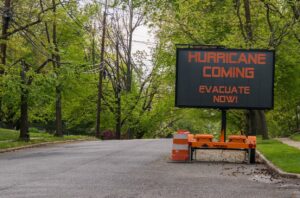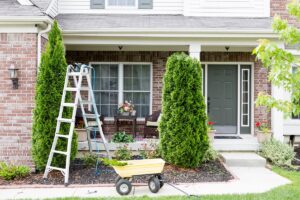Many new homeowners struggle with home maintenance costs. An easy way to save money – and help the environment! – is to make your home more energy efficient. To help you find ways to increase your home’s energy efficiency and lower your utility bills, Megan Turner and Pete Seyfer of Alliant Energy’s PowerHouse show stopped by the vipHome Podcast.
Megan and Pete have been helping customers with energy conservation and DIY home safety for almost 25 years on PowerHouse. Their show focuses on easy do-it-yourself projects and new energy technology homeowners can use in their houses. Check your local listings for PowerHouse, and watch this episode of the vipHome Podcast with guests Megan and Pete now!
Start with insulation and weatherization
“Insulation is certainly a great place to start,” says Seyfer. “In the wintertime, keep the warm air in your house, and in the summertime, keep the cool air in your house.”
Homeowners should start by checking their attic insulation levels. If they don’t have enough insulation, it’s time to add more. Then move on to the walls and ceilings, making sure leaks are sealed around the outlets, light switches, and any openings where air leaks can occur.
For less $100, homeowners can also add caulking and weatherstripping around windows and doors, where gaps aid in heat and cool air loss.
“Get a caulking tube and a caulking gun to seal around the windows and weatherstrip on the doors,” says Turner.
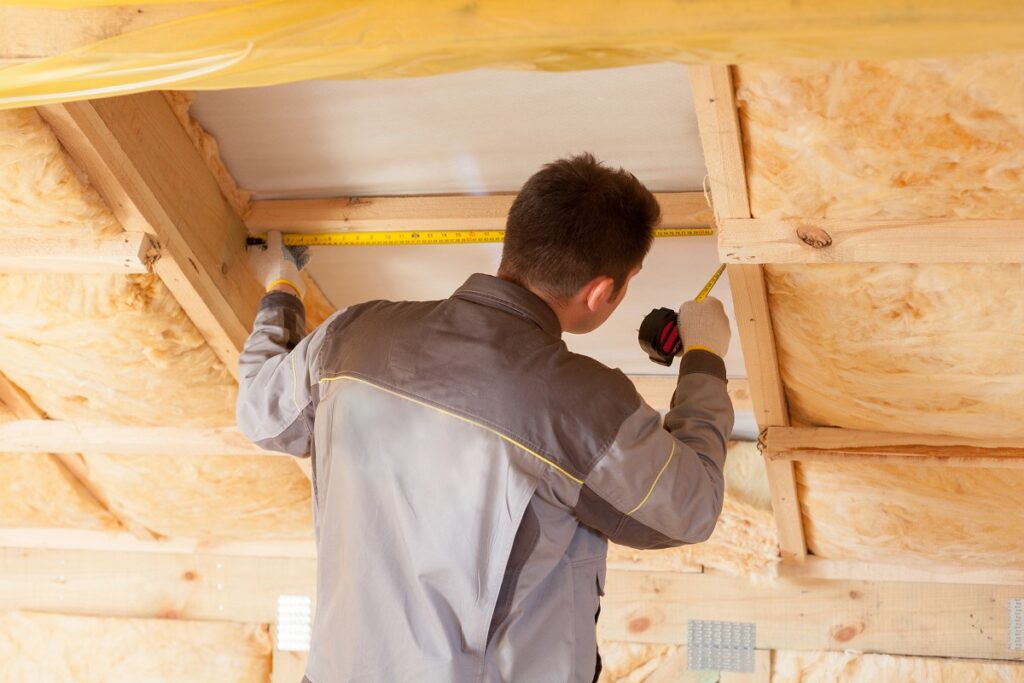
Of course, it’s always important to be careful when completing any home improvement projects, as Seyfer reminds us.
“One of our first years here at my house, a segment was blowing in insulation up in the attic,” remembers Seyfer. “I’m maybe not the most agile or gifted in terms of home projects, and I stepped off one of the joists in the attic and put my foot through the ceiling in my house. My attic is much better insulated, but I had to repair the ceiling.”
Shining some light on bulbs and phantom power
A relatively new technology, light-emitting diode light bulbs (or LED bulbs) can make a huge difference in energy costs.
“It’s a little bit more of an investment, but it really pays itself off,” says Turner. “What you want to do is take those few lights that you use most frequently or that are hard to reach, and replace those because the bulbs last much, much longer.”
With LED bulbs, 95% of the energy goes into the lighting, and only 5% is wasted in heat generated.
Homeowners should also monitor their energy usage around the home when it comes to all the small electronics, such as laptops , cell phone chargers, and video game systems. Many times these items remain plugged in when not in use, which isn’t cost effective.
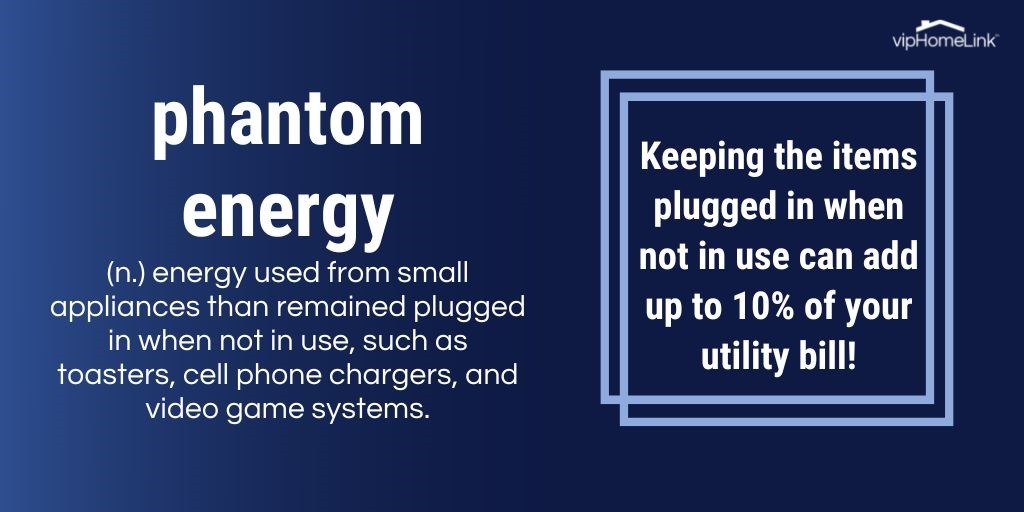
“We call that phantom power,” says Turner. “That phantom energy can really add up, up to 10% of your utility bill. That’s huge.”
Simply remembering to unplug these items when they are not in use can help to lower energy bills.
Applying energy saving techniques to appliances
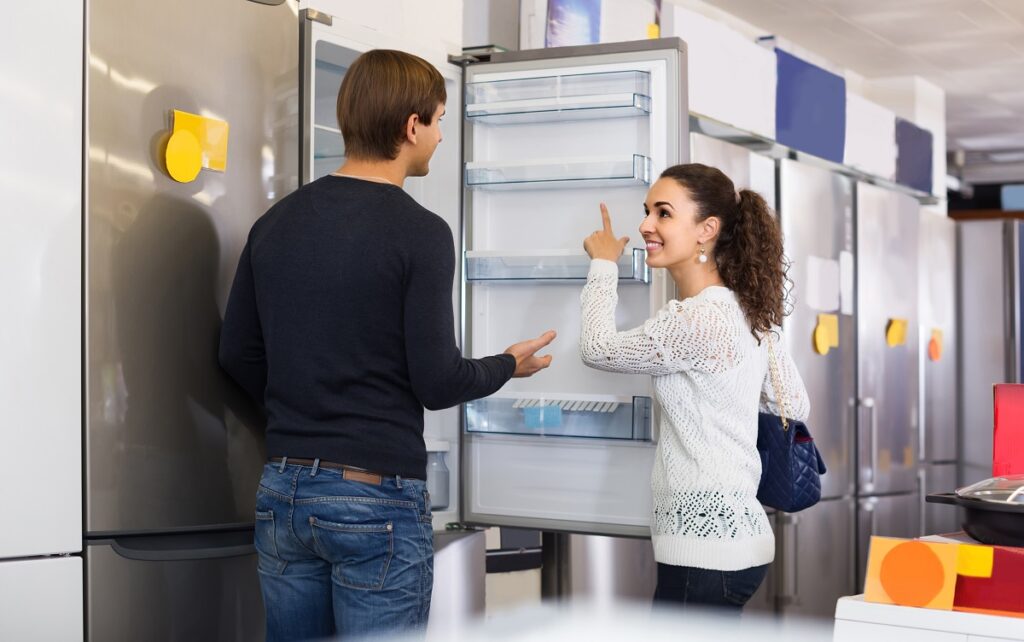
Since a handful of appliances use a bulk of the home’s energy, it’s important to keep them well-maintained and running efficiently. These appliances include the refrigerator, dishwasher, washing machine, and clothes dryer.
“With your refrigerator, you want to keep the temperature at 40 degrees and the freezer at zero,” says Turner. “That’s going to be an energy efficient path and still get the job done.”
Homeowners should also keep the doors shut unless getting an item and know what they need before opening the door.
“It takes a lot more energy to re-cool the unit if you stand there with the doors open,” says Turner. “Also, don’t overcrowd the refrigerator. They’re designed to be full but not jam-packed, because then the circulation doesn’t work.”
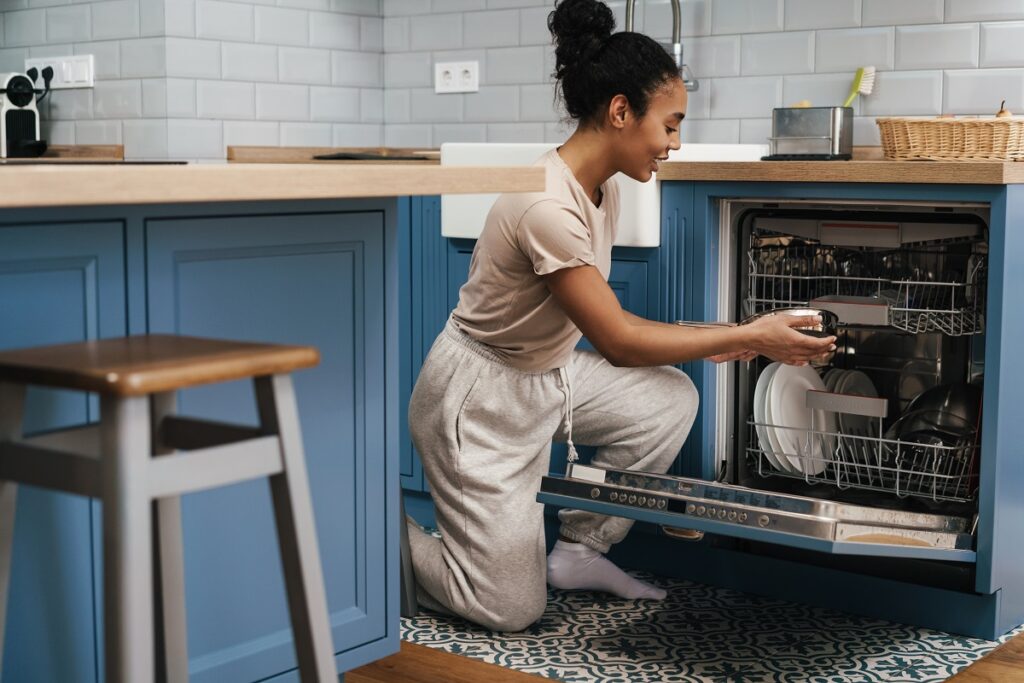
For dishwashers, Turner suggests homeowners use the eco-settings that are built into the unit and to rinse the dishes off before starting the unit. Also, only run the dishwasher when it’s full.
“Some people are in the habit of doing it every night, whether there are four cups in there or it’s loaded,” says Turner. “Do wait until it’s full because you’re going to use not only less energy but also less water.”
Likewise, washers and dryers should only be run with full loads, and clothes should be washed in cold water.
“It’ll get your clothes just as clean,” says Turner, though Seyfer notes that for sick homeowners, “we do recommend washing with hot water during that time.”
When buying new appliances, homeowners should consider ENERGY STAR-rated appliances, which are built to be energy efficient. In 2018 alone, American purchased more than 300 million ENERGY STAR-certified products.
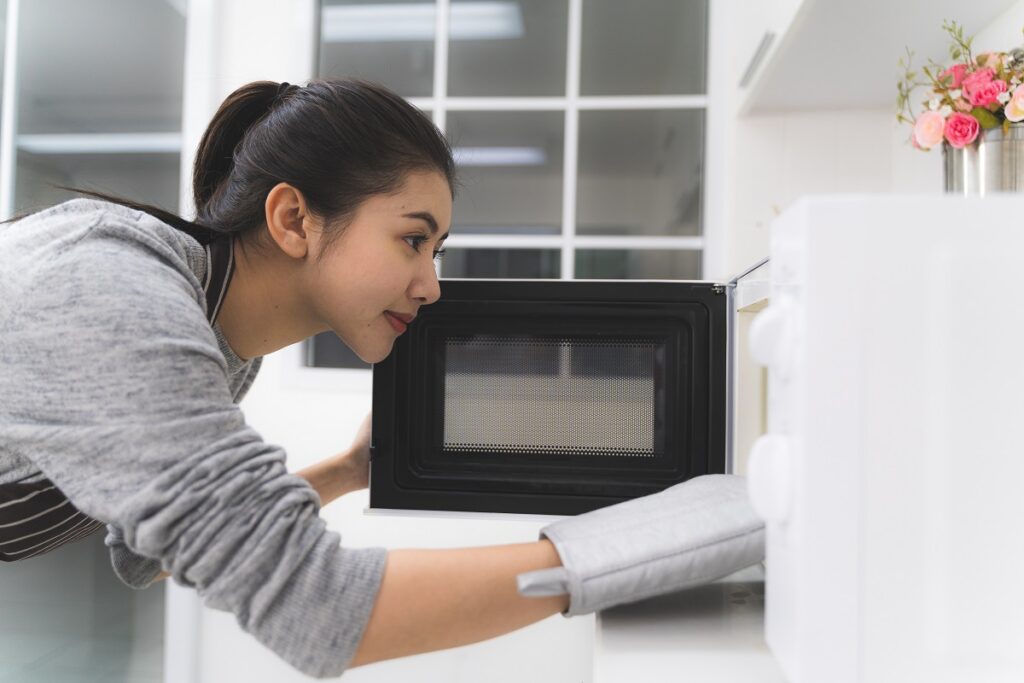
“Maybe you’ve got that second beverage refrigerator or beer refrigerator that maybe is 20 years old, but it sure keeps those beverages cold,” says Seyfer. “That’s not always the best use of that old refrigerator because they really burn through energy.”
Homeowners can also use smaller appliances like grills, crock pots, slow cookers, toasters, etc. that use just a fraction of the energy as an oven. They should also use the right pan on the right-sized stove top burner and put lids on pots, to not waste energy.
“That’s going to speed up your cooking, and it’s going to use less energy, too,” says Turner.
| Appliance | Annual Maintenance Tasks |
| Refrigerators | Clean the coils under the refrigerator with a vacuum cleaner. If you have a pet, you may need to clean more than once a year. |
| Clothes dryers | Clean the lint filter and duct with a vacuum. Make sure the vent is clear at the unit and outside. |
| HVAC systems | Have your heating and cooling system checked once a year. Also, clean off the outside of the AC unit with a garden hose. Spray inside and outside the compressor, and gently across the metal fins, making sure not to bend the fins. Trim the landscaping around the unit to allow at least a foot of clearance for good circulation. Before doing any maintenance, turn off the power to the unit at the electrical panel. |
| Ceiling fans | Make sure your ceiling fans push the cool air down during summer to create a wind-chill effect. In the winter, reverse the fan direction to push the warmed air trapped at the ceiling back down into the room. Remember, ceiling fans cool people, not rooms. Turn off fans when you leave the room. |
| Gas fireplaces | Fireplaces require seasonal tune ups to clean the units and vents. Make sure no animals make a home in the vent and clear out any debris. Consider hiring a professional chimney sweep for this project. |
Hot tips for your HVAC units
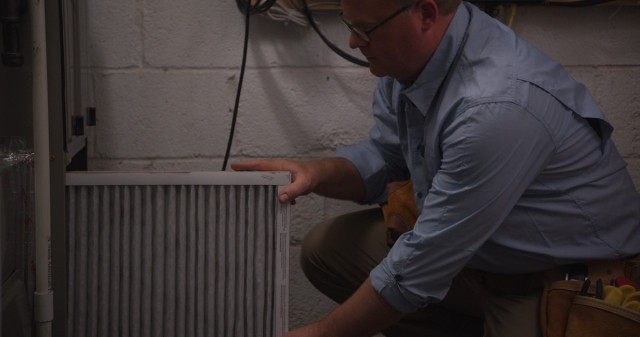
One of the most common maintenance tasks that homeowners forget or simply don’t know is changing the air filters in their furnaces or HVAC units.
“If you’ve got a dirty filter, the unit is not going to run efficiently,” says Seyfer, “and you’re going to use more energy and more dollars to run that furnace.”
While Seyfer recommends setting a reminder to complete this maintenance (and vipHome.app will send reminders directly to your phone). Having a service plan for your HVAC systems can save energy dollars for you and your home. Plus, all homeowners should install a programmable thermostat if they haven’t.
“Megan and I have put in more programmable thermostats over the years,” says Seyfer. “That’s another small investment. You can go up and get Nest and have everything programmed off your iPhone, which is wonderful. That’s significant savings in energy and energy dollars.”
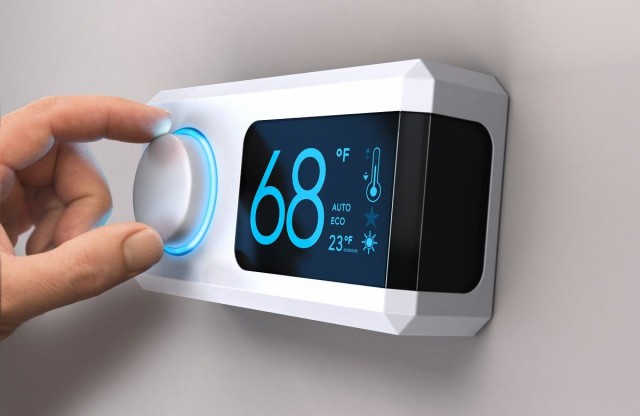
The best part about a programmable thermostat is that you can stop your heating and air-conditioning from running all day.
“You can set that to kick in before you get home from work or before you get back from vacation,” says Turner.
Energy.gov found that homeowners can save up to 50% on energy by shading air conditioning units with a bush or a tree (at a distance).
“If you think about it, we run more efficiently when we’ve got a little bit of shade when the heat is pouring down on us,” says Seyfer. “Your air conditioner is no different.”
This also works for all the overall home as well. Consider planting trees near your home (we have a few tips to keep roots attacking your foundation) and don’t forget to call 811 before digging. This will help you avoid hitting underground gas lines and powerlines.
“We always stress safety on any do-it-yourself projects on PowerHouse,” says Seyfer.
Testing your home’s energy efficiency
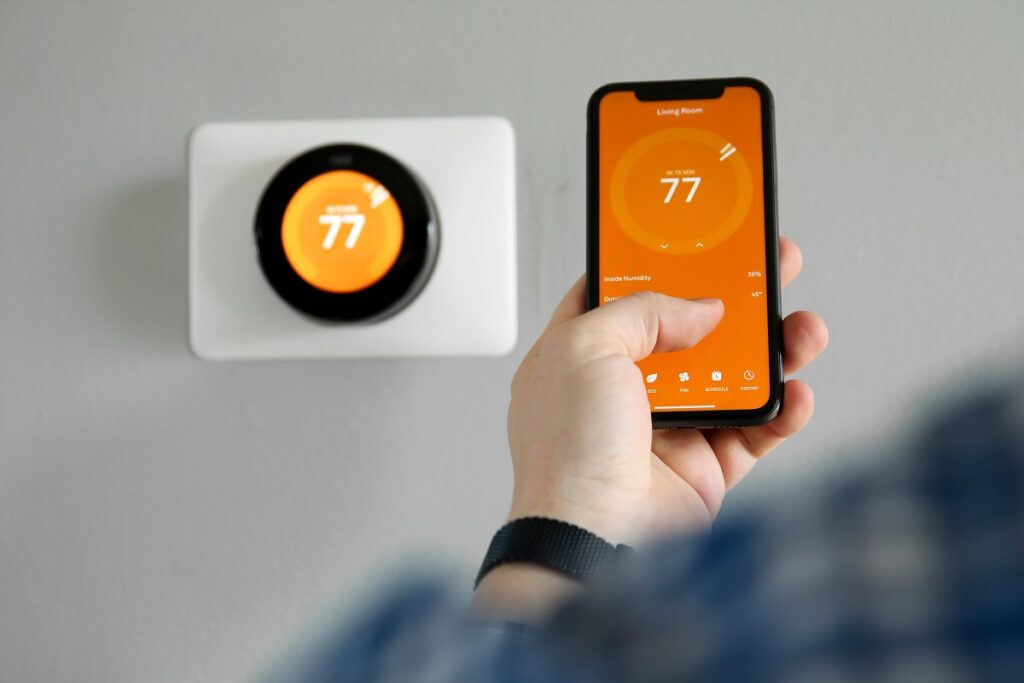
Existing homeowners may struggle with energy efficiency, but a good place to start making an old home energy efficient is knowing how efficient (or non-efficient) the structure is. Alliant Energy recommends taking a home energy efficiency test.
“On the Alliant Energy website, we offer an energy assessment,” says Seyfer. “You enter all of your specific information in there, and it’s basically a checkup for your home.”
The assessment offers recommendations for ways homeowners can improve their home’s energy efficiency and provides guidance on how to lower energy bills.
“I would say every five years, you can revisit it, too,” says Seyfer. “If you’ve done any other home improvements, you can plug those in. It keeps things up to date.”
Most utility companies around the country offer a home energy assessment, and some even offer a professional home energy audit.
“Most energy companies today are trying to be good citizens of our Earth and are looking at ways to make sure your home is energy efficient,” says Seyfer.
We recently spoke with the Department of Energy to learn what to expect during a home energy assessment, and watch the entire episode of the vipHome Podcast with Megan Turner and Pete Seyfer from Alliant Energy’s PowerHouse now.
Explore the neighborhood!
Homeownership can be hard, but it doesn’t have to be. The vipHome.app can help. In less than four minutes, enjoy a new way to manage your home. Simply download the app, register your home, and enjoy a simplified homeownership experience.
Download the app today!



